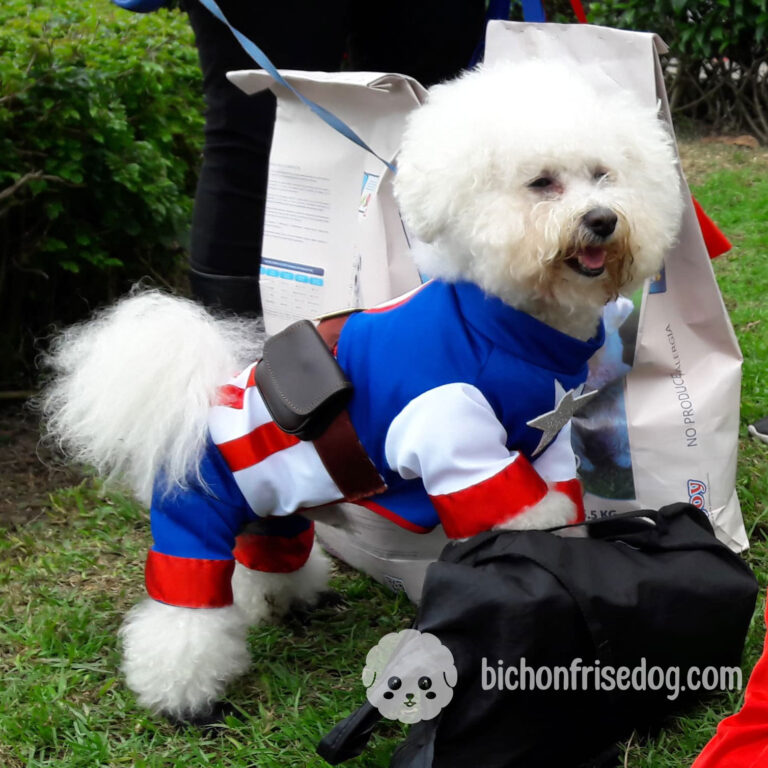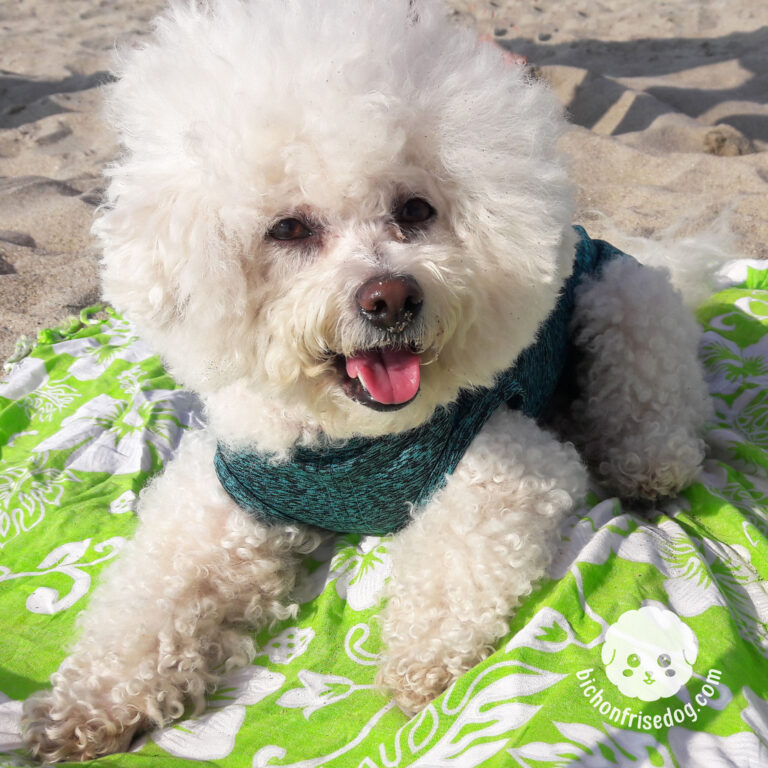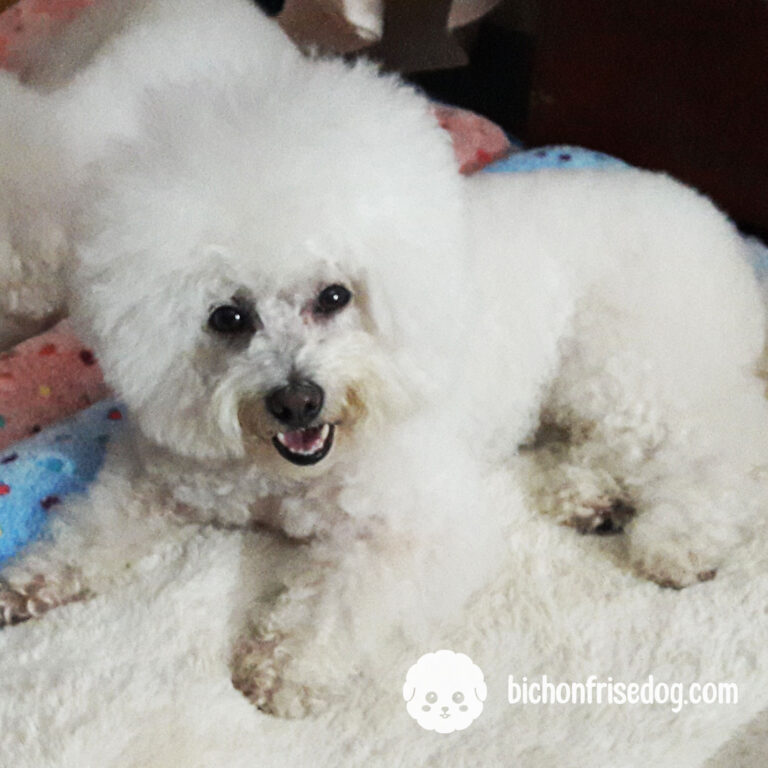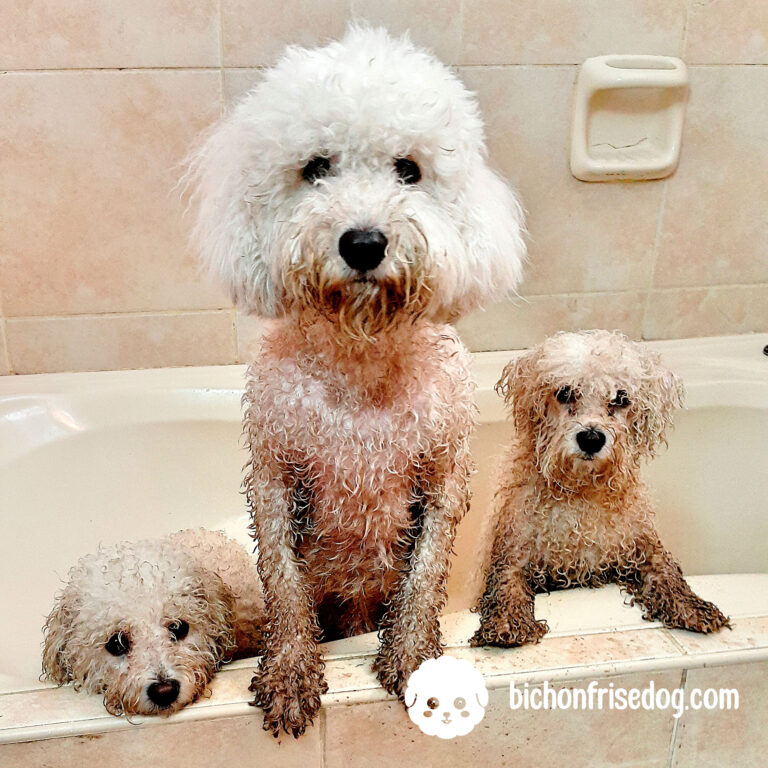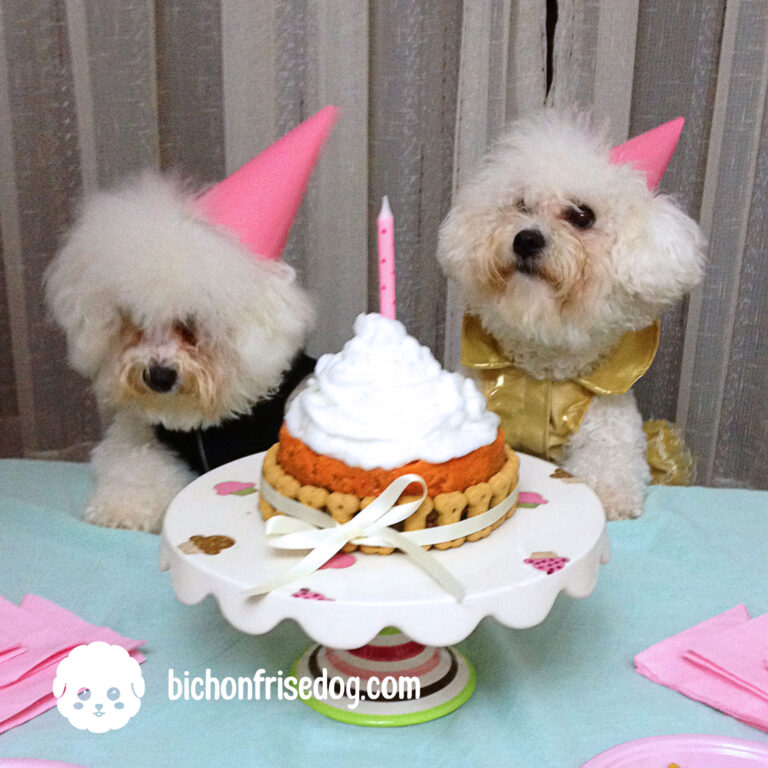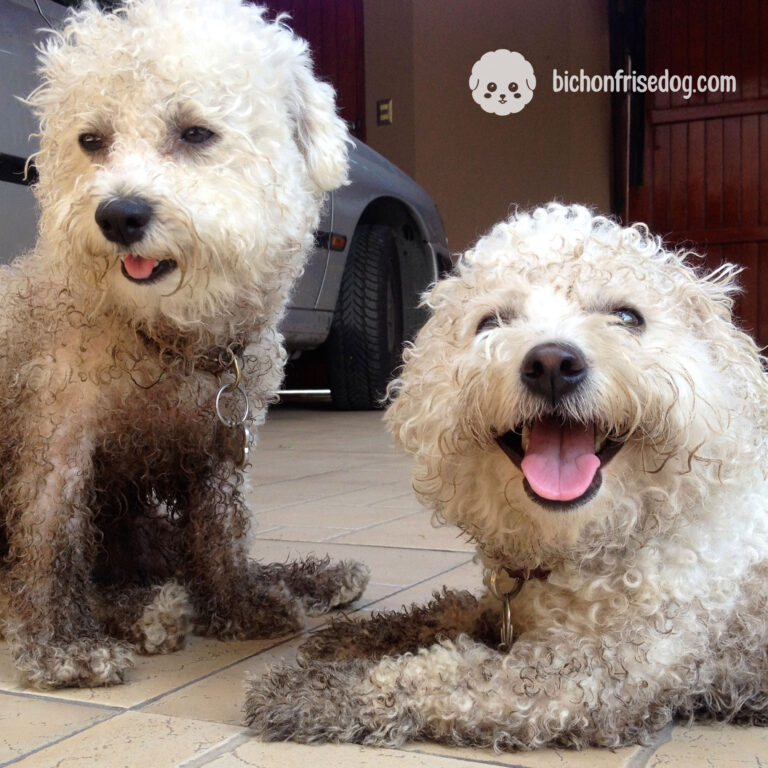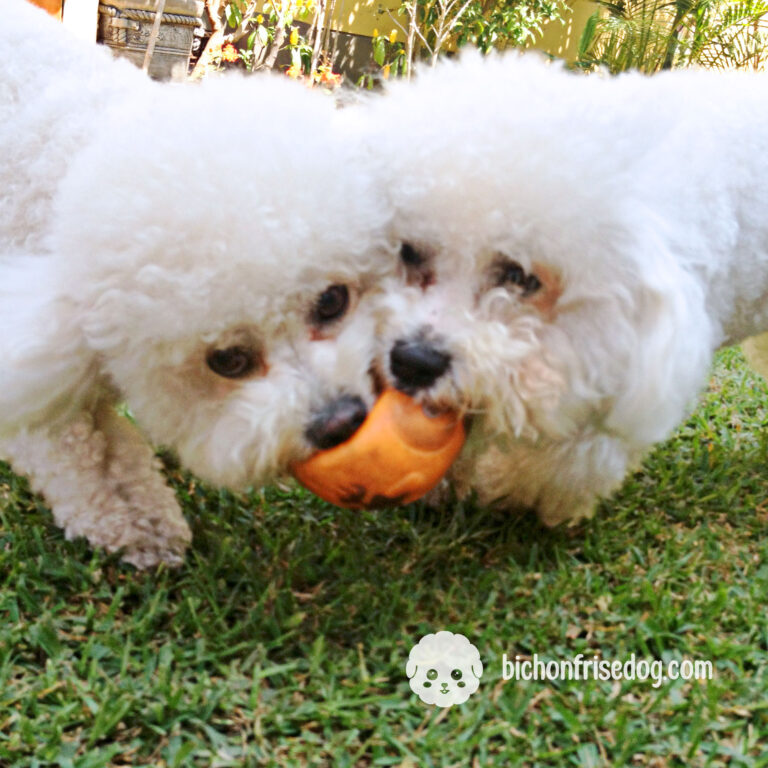Posts
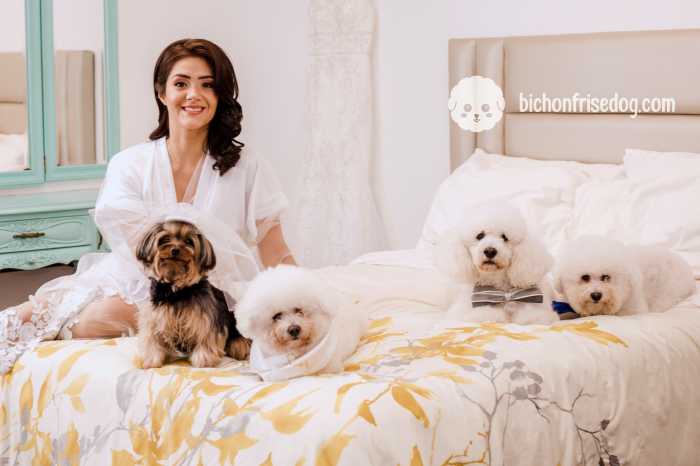
Hello and welcome to our website
This space was created from our deep love for the Bichon Frise. We’re proud owners of two wonderful Bichons, and through the years, they’ve filled our lives with…
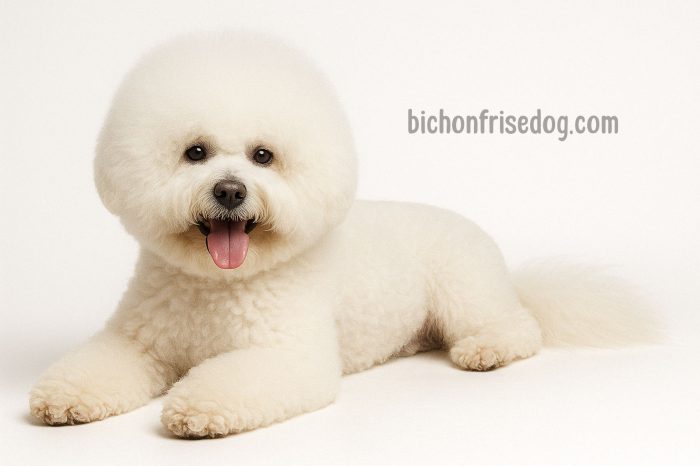
Interesting Bichon Frise facts
The Bichon Frise stands out as an excellent companion dog. It is considered a small breed, reaching its maximum size from the first year…

Unique Bichon Frise personality
Every dog has a unique and different personality, which is developed through breeding and genetics, making each one special. This dog loves to play…
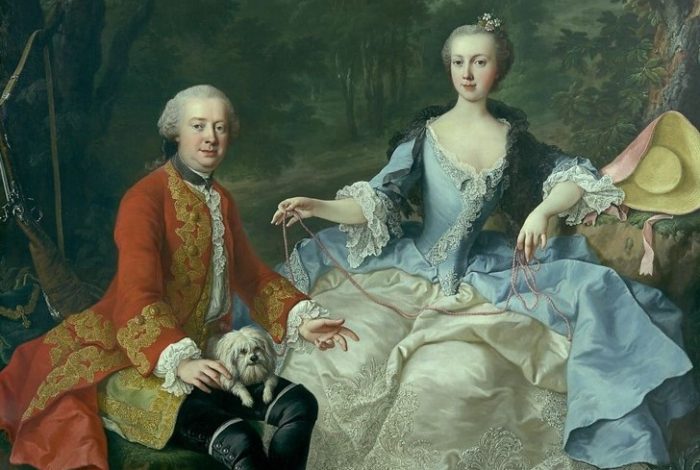
Where does Bichon Frise come from?
The origin of this breed began in the Mediterranean area, it is not known exactly where, but the most accurate approximation…
Categories
Frequently questions about Bichon Frise puppies.
While adoption from a reputable shelter is always the preferred option, in cases where a Bichon Frise is not available, we recommend seeking a responsible breeder or household where the puppies are raised in a nurturing environment and both parents are visible on-site.
Ideally, a Bichon Frise should be adopted at around four months of age. This timeframe allows the puppy to benefit from the full duration of nursing, which plays a crucial role in the development of healthy gut microbiota. Moreover, by this age, the puppy is typically more emotionally and behaviorally prepared for a healthy separation from its mother and littermates.
The ideal diet for a Bichon Frise should consist of approximately 80% high-quality animal protein and 20% complementary whole foods, such as fresh vegetables and fruits. We do not recommend the use of dry or heavily processed commercial foods, as they often lack the nutritional integrity required for optimal health.
From three to six months of age, Bichon Frise puppies should be fed four times daily. After six months, the feeding schedule may be reduced to two meals per day. The exact quantity should be tailored to the individual dog, taking into account its age, weight, and level of activity.
In the early stages, we suggest starting with balanced homemade preparations — such as chicken (including skin for healthy fats) combined with a small portion of rice to ease digestion. As the puppy grows, ingredients like finely grated carrots, spinach, sweet potato, and boiled egg can be gradually introduced.
Beginning at around eight months of age, the Bichon Frise may transition to a BARF (Biologically Appropriate Raw Food) diet, which is designed to meet the nutritional requirements of dogs at each life stage, supporting healthy development, immune function, and coat quality.
The Bichon Frise’s distinctive white coat, while elegant and eye-catching, tends to show dirt and stains more readily than other breeds. For this reason, it is advisable to gently clean their paws and facial area on a daily basis using unscented, pet-safe wet wipes to maintain hygiene and appearance.
Regular brushing is essential to prevent matting and preserve the coat’s characteristic fluffiness. We recommend brushing every day using a long pin brush with rounded tips, which helps to detangle the undercoat without irritating the skin.
As for bathing, once every two weeks using a natural shampoo formulated for dogs is ideal. This not only keeps the coat clean and soft, but also helps reduce allergens and maintain healthy skin.
Every Bichon Frise requires a designated safe space that supports both physical comfort and emotional development. This area should be quiet, free from loud or sudden noises, and thoughtfully equipped with a comfortable bed, engaging toys, and clean bowls for food and water.
Due to their grooming needs and temperament, Bichon Frises are not suited to living outdoors. Maintaining the cleanliness and integrity of their coat in an outdoor environment is nearly impossible, and prolonged isolation can be detrimental to their well-being. As a breed developed specifically for companionship, the Bichon Frise thrives on human interaction and should not be left alone for extended periods of time.
The Bichon Frise has an average life expectancy of 12 to 15 years, although there are documented cases of individuals living up to 19 years. Longevity in this breed is closely tied to two key factors that are within the owner’s control: nutrition and physical activity.
A balanced, species-appropriate diet—such as BARF (Biologically Appropriate Raw Food) or well-prepared homemade meals—can significantly contribute to long-term health. These nutritional approaches support immune function, reduce inflammation, and help prevent the onset of chronic conditions such as cancer, diabetes, and osteoporosis.
When paired with regular exercise, mental stimulation, and a low-stress environment, a healthy diet can greatly enhance both the quality and duration of your Bichon Frise’s life.
There is no definitive answer as to whether a male or female Bichon Frise is better—each dog possesses a unique personality that goes beyond gender. When choosing a companion, it’s essential to focus on temperament and compatibility rather than sex alone.
From a physical and behavioral standpoint, there are a few differences to consider. Female Bichon Frises experience estrus (heat) approximately twice a year, during which time the use of special protective diapers is recommended to maintain hygiene. Male Bichons, on the other hand, may exhibit territorial marking behaviors indoors. However, with consistent training, patience, and positive reinforcement, such habits can be managed and corrected effectively.


